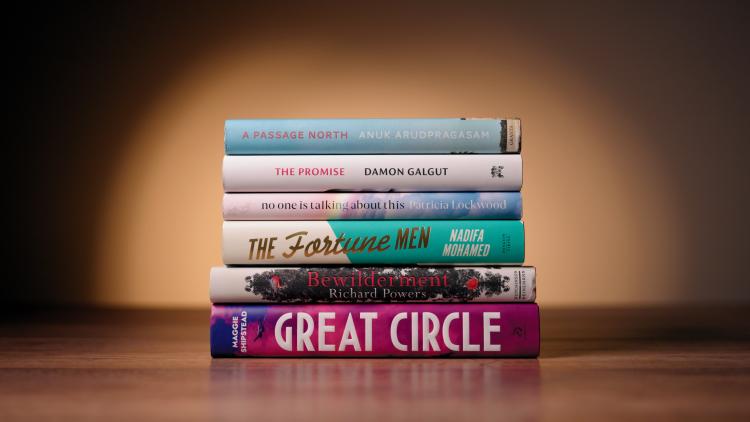

As part of a series in which Booker authors choose their favourite Booker books, Richard Powers takes a look at Penelope Fitzgerald's 1979 winner.
Richard Powers on Offshore
As part of a series in which Booker authors choose their favourite Booker books, Richard Powers takes a look at Penelope Fitzgerald's 1979 winner.
‘I was adrift and off balance and far out of my natural habitat when reading Offshore.’
Richard Powers, twice shortlisted for the Booker Prize for The Overstory and Bewilderment, found himself a ‘very different reader’ after he consumed Penelope Fitzgerald’s 1979 Booker Prize-winning novel Offshore. Here, Powers writes for us about the impact of the book, and why he finds it so powerful.
A few days in the life of half a dozen adults and two children who live a marginal life in boats moored at Battersea Reach, bobbing on the tides of the Thames: I can’t imagine a book farther in sensibility from the ones that I’ve spent more than half a century learning how to read and emulate. But Penelope Fitzgerald’s Offshore intrigued and moved me, and in my early 60s, it taught me something new about what novels can do.
I have always written looking outwards, through a telescope, looking for the big picture, searching for stories about how our technologies and sciences have changed who we think we are and where we believe we find ourselves. Fitzgerald, by contrast, is the master of the microscope, keeping her relentless and remorseless eye on the most local of details and the most intimate, exacting, character-driven hopes and fears. Where I’ve spent a life attracted to the maximal, encyclopaedic novel, Fitzgerald devoted herself to the phenomenally finished miniature, and indeed, Offshore is a mere 141-page pocket universe.

Penelope Fitzgerald
Fitzgerald is the master of the microscope, keeping her relentless and remorseless eye on the most local of details and the most intimate, exacting, character-driven hopes and fears
A single mother of two wild children, a male prostitute, a shady businessman, a failed painter, a withdrawn veteran: I would have struggled to inhabit or animate any one of them. But I felt a weird kinship with these lonely outsiders, and their insignificant lives lived among the flotsam and jetsam of underclass London compelled me beyond my expectation. In some parallel universe, I would have gladly aspired to capture these foreign lives with such precision. Because here’s the thing: over the course of decades, I’ve written myself toward an understanding of just how deeply imbricated and interdependent all of existence is, however alien any part of it may seem. And in Fitzgerald’s symbiotic community of floating souls struggling to make a go of life on a mass of barges bound together in a tidal backwater, no single character can walk across a rotten plank of deck without altering all the other lives in this tightly bound cast.
Yeats often insisted that artistic and personal growth depended on reaching out to your complement and finding yourself in your very opposite. I was adrift and off balance and far out of my natural habitat when reading Offshore. But those few days away in a biome so very different from my own made me suffer a sea-change, and I was a different kind of reader by the time I came back on land.
Richard Powers is the author of Bewilderment, shortlisted for the 2021 Booker Prize.

‘A single mother of two wild children, a male prostitute, a shady businessman, a failed painter, a withdrawn veteran: I would have struggled to inhabit or animate any one of them.’
© Allan Cash Picture Library / Alamy Stock PhotoExplore the Booker library

































